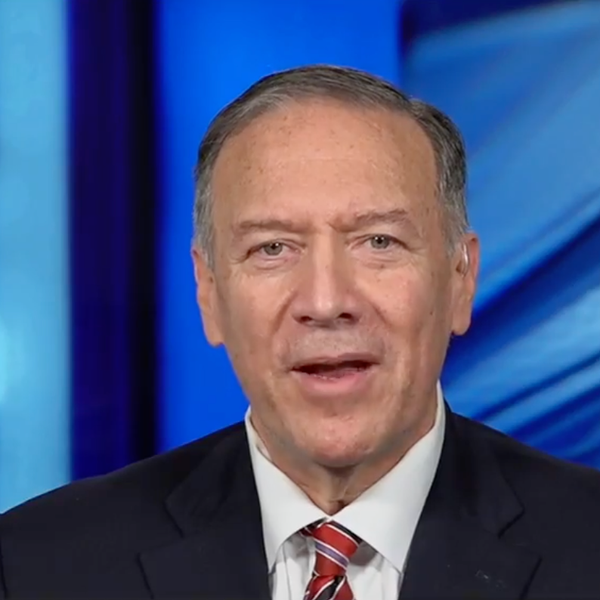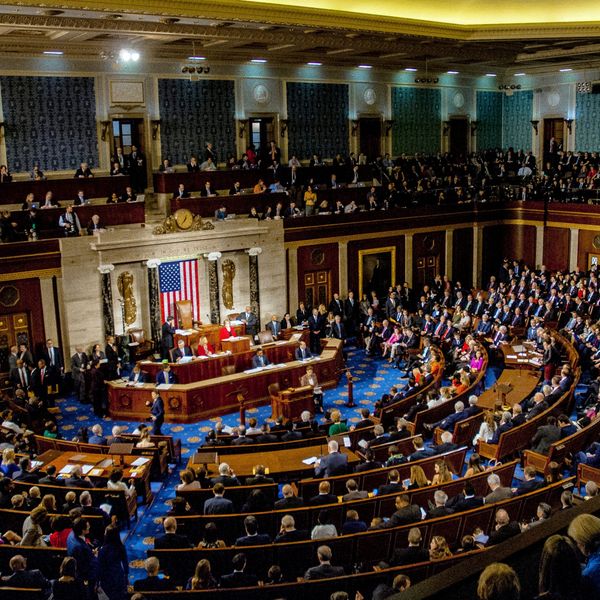It’s that time of year, and despite all the budgetary drama unfolding on Capitol Hill, lawmakers have already finished most of their holiday shopping for their favorite children: Pentagon contractors.
Through cryptic “program increases” to the defense budget appropriations for fiscal year 2024, most with no listed author and little to no justification, Congress has added more than $25 billion to the Pentagon’s procurement and research accounts for fiscal year 2024.
Based on the continuing resolution that Congress passed in November, Congress has until February 2 to either pass another stopgap measure, or pass a final Pentagon spending bill, at which point we should be able to see which program increases make the cut. If history is any indication, almost all of them will be in the final bill.
In the meantime, a new database created by Taxpayers for Common Sense reveals each of these program increases, whether they fund projects that weren’t funded at all in the Pentagon’s budget request, and whether they fund projects requested in Unfunded Priorities Lists (UPLs), extra-budgetary wish lists that Congress requires military service branch and combatant command leaders to submit to Congress each year.
The numbers
Lawmakers on the House Appropriations Committees got to work early, adding 479 program increases for a combined $9.5 billion. When their Senate counterparts got to work, they included 636 program increases in their bill worth nearly $15 billion — so all in all 1,115 program increases. Broken down by bill section, there were 172 increases for procurement between the House and Senate at a cost of $14 billion, and 943 for research, development, test and evaluation (RDT&E) at a cost of $10.5 billion. When the House version of the Defense Appropriations bill came to the floor, lawmakers added 11 more program increases for procurement, and another 90 for RDT&E, for a combined $1.1 billion.
While these kinds of adds are nothing new, their numbers do seem to be growing, particularly in the RDT&E category. In fact, the number of RDT&E top-ups has grown by 72% in the past four years, from 600 for FY2021, to 776 for FY2022, to 996 for FY2023, up to 1,033 for FY2024.
More troubling still is that 1,010 of the total 1,216 increases, or $14.5 billion of the $25.7 billion lawmakers have added to these accounts, are for projects the Pentagon didn’t fund at all in its budget request.
Are they earmarks?
According to Congress, these increases aren’t earmarks, but in practice, they often serve the same purpose and are not subject to transparency reforms traditional earmarks have faced since 2007.
Traditional earmarks, rebranded by Congress as “congressionally directed funding” or “community project funding,” support projects that fund a specific entity for a specific purpose in a specific place. This made them a favored tool for lawmakers to funnel taxpayer dollars into their district or state. But these earmarks come with rules, requiring members to put their names on them, and in the House’s case, requiring members to list their earmarks on their websites.
Program increases are not bound by these rules. They have no name attached (apart from amendments, which list their sponsors) and generally lack any accompanying justification. In the Senate Appropriations Committee report on the Pentagon spending bill, a section on “funding increases” stipulates that “funding increases shall be competitively awarded, or provided to programs that have received competitive awards in the past.” So Congress seems to differentiate these increases from earmarks on the basis that they’re competitively awarded, unlike traditional earmarks. In practice, that rationale breaks down.
Next-gen earmarks
One program increase allocates $2 million for “urban subterranean mapping technology,” a fancy name for tunnel detection. This increase has appeared in every Pentagon spending bill since FY2020, for a total of $17 million over five years, but there’s almost no publicly available information about this project. That is other than Sen. Joe Manchin’s (D-W.Va.) regular celebrations of funding for West Virginia-based Marshall University to research urban subterranean mapping technology in press release after press release after press release after press release, all of which were published before the funds they celebrate were formally awarded.
Some adds are even more blatantly noncompetitive. In the House, someone added $7 million for “Omniblast water sensor technology.” If that sounds weirdly specific, it’s because it is. The Omniblast water sensor is a trademarked product, owned by a company called Advanced Materials and Devices (AMAD), Inc. It goes without saying that program increases for patented products can only be fulfilled by the patent owners, so AMAD Inc. is more than a shoe-in for any “competitive” award process. And while AMAD Inc. was awarded a contract for “a wearable underwater blast sensor” in 2022, it was the only bidder, suggesting a not so competitive process in the past.
As to whether this funding, like an earmark, is meant to serve the political interests of a specific lawmaker, we can’t know for sure without knowing the author. But AMAD Inc. is based in Reno, Nevada, in the district of Rep. Mark Amodei’s (R-Nev.), who sits on the House Appropriations Committee. While AMAD Inc. hasn’t made any political contributions to Rep. Amodei’s campaigns, it did spend $150,000 on lobbying in 2022, and $120,000 on lobbying in the first three quarters of 2023, expenses paid to a lobbying firm called Cornerstone Government Affairs. Cornerstone donated $3,000 to Rep. Amodei so far in the 2024 election cycle, its first time contributing to any of his campaigns.
Unjustified adds, unjustifiable secrecy
Asked about these program increases, a Senate Appropriations Committee staffer pointed to the unfunded priorities they fund as a justification. But there are two problems with that argument. One is that Unfunded Priorities Lists (UPLs) are just that: unfunded, meaning the Pentagon didn’t find them important enough to include in its $826 billion request. Almost by definition, items on these UPLs are non-priorities for the Pentagon. The second problem is that UPLs only accounted for about $1.9 billion of the $25.7 billion lawmakers added to the Pentagon’s request for procurement and RDT&E.
The staffer also argued that the Pentagon sometimes “relies upon congressional increases to keep production lines open or to sustain readiness of the military.” This tack obfuscates the fact that for a lot of the funds Congress adds, it subtracts funds from elsewhere in the Pentagon budget. While the offsets for the committee adds are as opaque as their authors, the offsets listed in amendments overwhelmingly raid the Pentagon’s Operations and Maintenance account. That’s Congress’ prerogative, but lawmakers can’t raid O&M to pay for procurement and research adds and then say with a straight face that those adds are about supporting military readiness.
All this isn’t to say that none of these projects are worth funding. There’s more than 1,200 of them, so surely some are. But with the lack of transparency for who requests and approves them, whether the funds are competitively awarded, and whether they align with any cogent national security strategy, who’s to say? If lawmakers think cramming another $25 billion for procurement and research into a $826 billion budget of an agency that just failed its sixth audit is worthwhile, they should at least let us know who’s adding what and to what end.
- Pentagon can't account for 63% of nearly $4 trillion in assets ›
- Biden's new whopping $886B defense budget request ›
- The world weeps while the military industrial complex keeps winning | Responsible Statecraft ›
- Popular YouTuber discovers how corrupt the Pentagon budget is | Responsible Statecraft ›
















